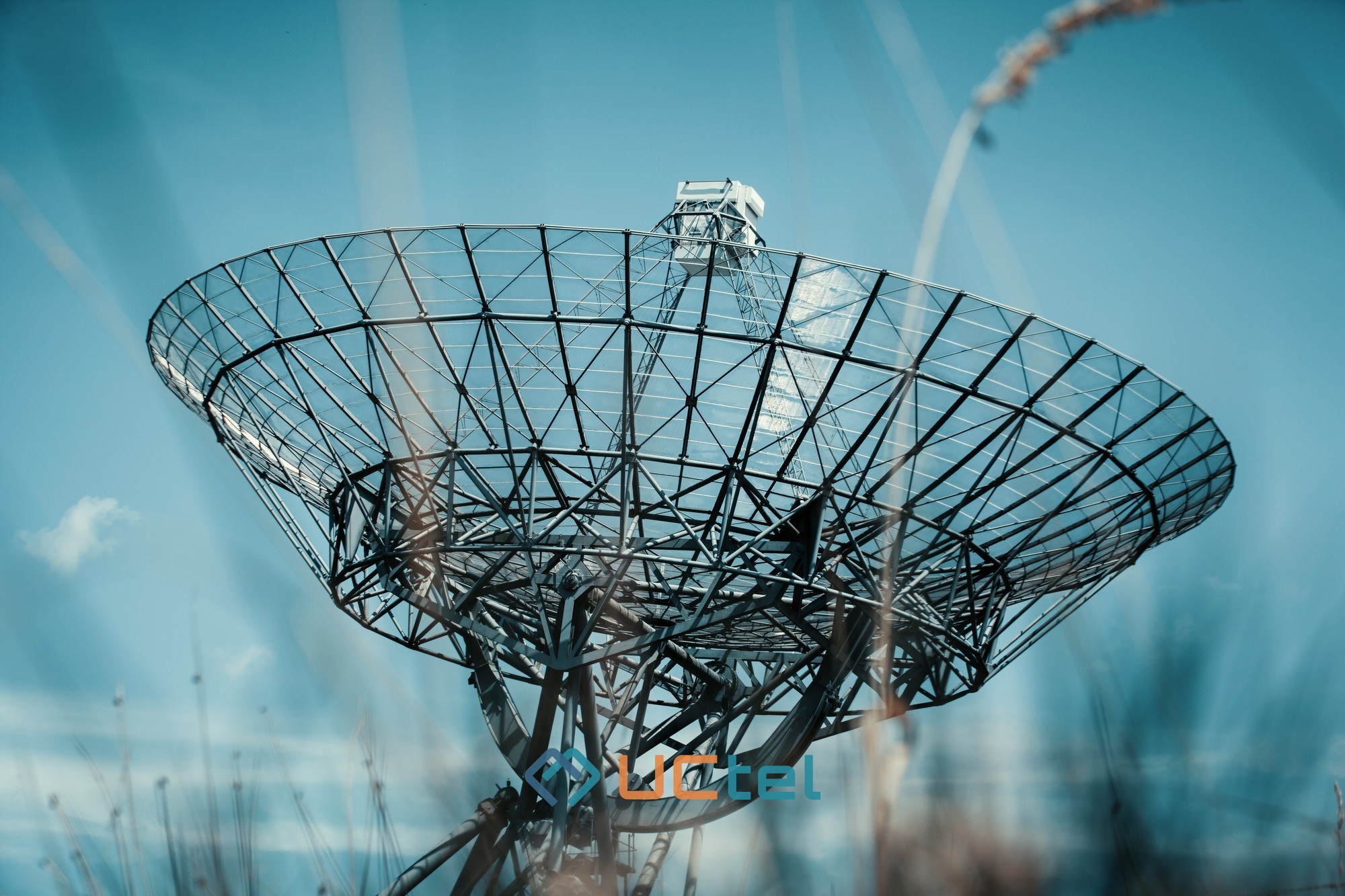
5G Network in Service to Environmental and Enterprise Sustainability
Table of contents
Contrary to what many may believe, it has been proven that the 5G network contributes to environmental sustainability in business. In fact, a sustainability report by Nokia confirmed that the 5G network is 90% more energy-efficient than the 4G and 3G networks.
As a result, using 5G is tantamount to lesser CO2 emissions to our environment and reduced energy costs. That said, this article will discuss 5G and sustainability, highlighting the benefits of 5G for the environment and its role in enterprise sustainability. We’ll also highlight some industries sectors that are already integrating 5G to boost their efficiency.
What Is the Role of 5G Network in Sustainability
A 5G network is the improved version of the 4G and 3G networks, designed to provide reliable and secure wireless network services. 5G technology meets several sustainability reporting requirements that make it an integral player in the pro-earth campaigns to boost productivity without adversely affecting our society. Some of its roles in environmental enterprise sustainability include:
Energy Efficiency
Energy efficiency as a role of 5G in the sustainability of our environment refers to how much energy is saved when transmitting 5G network packets. Based on this, 5G is 90% more efficient than 4G. Generally, the data-efficiency coefficients of various internet technologies increase from 2G to 5G. Hence, experts advise that if you have a network infrastructure comprising 2G, 3G, 4G, and 5G, it would be best to shut down everything except the 5G and reroute your network through it to save more energy.
Furthermore, many 5G vendors claim that 5G cell sites can automatically shut down when there is no packet to transmit. Such techniques enable 5G sites to reduce about 40% of their energy consumption and power requirements.
Smart Cities
Besides energy efficiency, one of the major roles of 5G wireless networks is to lead the way for futuristic smart cities. These infrastructure investments have many environmental impacts, including a direct reduction in climate change. Apparently, with more data usage and consumption, enterprises and the general populace in smart cities will need better networks to transfer or collect data securely and faster. The 5G network can fulfil this promise by providing networks with reduced latency, faster speed, security, and improved customer experience over its predecessors. It does this by decongesting enterprise networks through network slicing and supporting more devices simultaneously.
Climate Change Mitigation
According to the NOAA climate report, before 1981, our climate temperature levels changed by 0.14 degrees Fahrenheit per decade, as recorded since 1880. However, since 1981, it has increased by 0.32 degrees Fahrenheit—twice what it averaged before that time per decade. The reason for this fast change lies in our increased dependency on unsustainable resources and activities like fossil fuels, deforestation, electricity use, waste disposal, etc.
Meanwhile, a sustainable 5G network for enterprises could help cut back on carbon emissions and eventually reduce climate change significantly. Reportedly, some leading infrastructure behind the development of 5G and the upcoming 6G networks are sustainable equipment like liquid-cooling base stations, enhanced chipsets, and, of course, gallium nitride (GaN) amplifiers—all environmentally safe.
These infrastructures can help reduce the impact of network cells, such as radio emissions, CO2 emissions, and wrongfully disposed electronic wastes (e-waste) containing harmful chemicals and gases. These infrastructures will last longer, increase power density in cell sites, and reduce energy emissions to the environment.
What Are the Enterprise Benefits of 5G Network for Sustainability
The sustainability of the 5G network contributes to reducing the cost of running businesses as well as resource wastage by providing a faster and super-responsive network. Here are some of the benefits of the 5G network in service to sustainability:
IoT Integrations
One way 5G influences environmental and enterprise sustainability is through its support for internet-of-things (IoT). The foundation of IoTs is data transmission between tech devices. Since 5G can deliver this transmission faster than its predecessors, you can integrate IoT services with full automation between IoT devices and your digital/business platform more efficiently, regardless of the data structure and size.
In fact, 5G’s increased network handling capabilities and virtualisation can help future IoT devices operate optimally. As a result, this will speed up business processes and drive sales or profitability.
Data Security and Privacy
Recall that a 5G network is an improved version of the 4G network. This means that 5G networks also use improved security protocols of 4G networks to enhance data security and user privacy. In addition to improved security systems like encryption and authentication, 5G networks enable impressive network-slicing protocols.
Network slicing simply means that with 5G networks, organisations can create isolated virtual networks that allow enterprises to transfer individual data across separate networks simultaneously. That way, they can reduce unauthorised attacks and single-point failures of the network system if there happens to be any attack—more like a plan B for data transfers over a wireless network.
Increased Efficiency
One of the most important benefits of 5G network for sustainability is enhanced efficiency. 5G network can handle 100 times more traffic and payload than its predecessors. This means more efficiency and capacity. Additionally, 5G is faster and has a lower latency to deliver data packets than 4G. This is good for business, as no customer wants to engage in digital businesses whose platforms load or run slowly. As a result, you’d always experience a high churn or bounce rate in slow platforms with high latency.
Environmental Monitoring and Protection
5G networks in environmental monitoring and protection systems are a dealbreaker. For instance, you’d be sure to get detailed and real-time data from a 5G-enabled camera or sensor. This would help maintain efficient and faster responses to life-threatening or delicate emergencies or situations.
Resource Optimisation
When discussing 5G and sustainability, we must know that a 5G network doesn’t only enable IoT integration and data security but also ensures enterprises use network resources efficiently, as well as decrease packet loss through radio resource management. This resource optimisation technique maximises network performance and reduces network costs while ensuring that people and businesses use reliable and secure networks.
Examining the Sustainability of the 5G Technology in Various Industries
The benefits of 5G technologies extend to many industries. Industries like healthcare, agriculture, and power can streamline and boost their productivity and income generation by integrating 5G technology. Let’s see how they can achieve all these below.
Healthcare Sector
The healthcare sector is a delicate one. Precision and timing matter a lot, and this is where 5G networks come in. The 5G network in embedded IoT machines could help medical staff and students monitor critical health conditions faster and in real time. This would help doctors or nurses to diagnose and respond to life-threatening situations faster and more efficiently.
Moreover, low latency and high-speed networks often produce the cleanest graphics. With 5G performance promises, medical staff can probably download or upload precise and clean results or diagnostic photos that help them solve patients’ health issues.
Agriculture
Another sector with noticeable sustainability and 5G network needs is agriculture. There are so many areas where 5G integration can help to facilitate food productivity, security, and healthy plant and livestock production. For instance, farmers usually need robots and machines for maximum output.
Many of these robots use IoT-embedded systems or often require wireless connectivity. Malfunctions often occur due to network congestion or packet losses, which could cause grave problems if not addressed in time. However, with 5G promises in line, agriculturists can confidently cultivate and groom livestock with efficient environmental monitoring and protection systems and robotics.
Energy Grids and Power Stations
5G network can boost security and efficiency in power stations and grids. Distribution System Operators (DSO) can improve power management and streamline energy distribution and reliability through 5G-enabled automation and IoT systems to monitor and speed up in-house and broadband communication and connectivity in real time.
Also, as we explained with 5G in agriculture, energy grids and power stations can leverage 5G embedded IoT systems to monitor and protect their grids and stations from potential hazards that could cause total blackouts.
Consider UCtel's Expertise in Private 5G Networks for Businesses
5G network’s distribution and installation are usually interesting and seamless when you have reputable and reliable vendors to help you cut through the stress and worries of this emerging technology. With UCtel's private 5G network services, you’re one foot from enjoying the various benefits accruable from the roles of 5G in the sustainability of your mobile systems and enterprises, regardless of the industry. You can view our case studies or resource centre to learn more.
Conclusion
The role of the 5G network in sustainability is still progressive, and we can only expect more of the great things it could offer enterprises in building sustainable and reliable connectivity and business infrastructures. Sectors like agriculture, power distribution factories, and healthcare already enjoy 5G promises. Nonetheless, we expect more 5G-enabled sustainability and enterprise-level services in the future.






